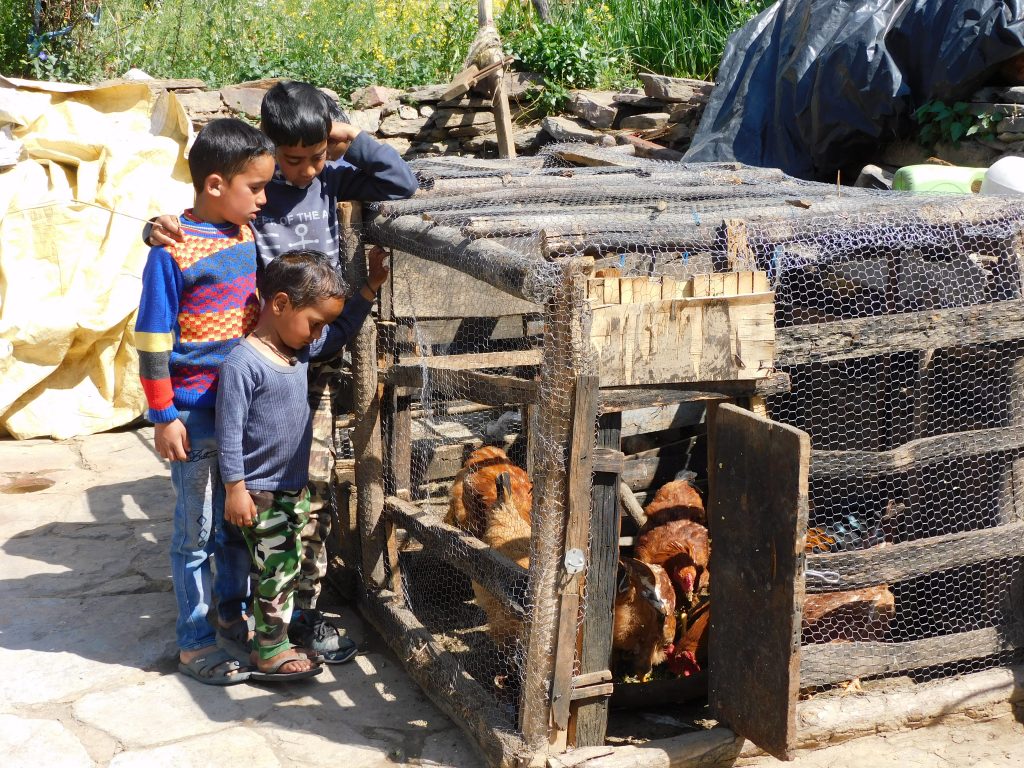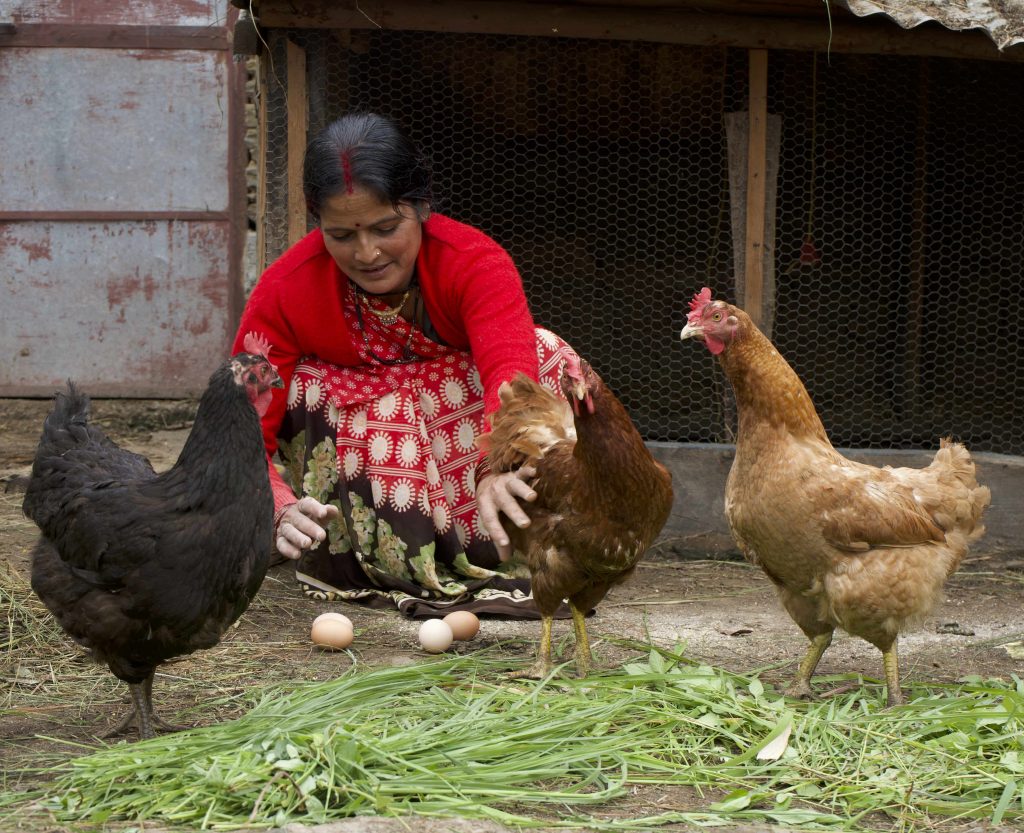As I entered Dadgaliya village with the village workers, children started running towards us singing in tandem – ‘Murgiwale aa gaye (here comes the chicken men!)’. The group of children accompanied us throughout our day long stay in the village, taking us to every household, proudly showing the hens. This was not what I experienced when I visited Dadgaliya two years back.

Dadgaliya is a remote village with poor road access in Rankhet district of the mountain state in Uttarakhand. Here, most household have small gardens where they grow onion, garlic as cash crop and some vegetables for their own consumption. Erratic rainfall, scattered holding, low production of pulses and financial constraints have emerged as key factors behind lack of protein in their diet.
It was Hema Devi, a rural service provider from Dadgaliya under Welthungerhilfe’s Nutrition in Mountain Area project who showed interest to start poultry, especially to raise chickens. In 2018, she started with 6 local chicks, fed them millet, pulses, wheat, and green leafy vegetables. Within a couple of months, she was able to get enough eggs for her family. As the quantity of eggs grew to a surplus, she began selling the eggs within their village and encouraged more locals to practice poultry farming. Hema sold a few chicks to others within the village and shared her newly gained knowledge of poultry farming. At a time when income generation was an all-time low around the country, Hema Devi ensured they got a steady additional income. Others joined gradually. Upon realising the success of their endeavour, the project organised consultation with the experts on improving rearing practices.

The interest among the locals in Dadgaliya village grew exponentially. Now, after a period of two year, 60 families of the village have hens in their courtyard and eggs on their plate. Some of them earn as much as INR 20,000 annually. Their chicken and eggs are sold from the doorstep. The children showed us all – I got tired by looking at the hens, often they looked same to me. But they knew the hens by name, they knew which rooster is ferocious.




